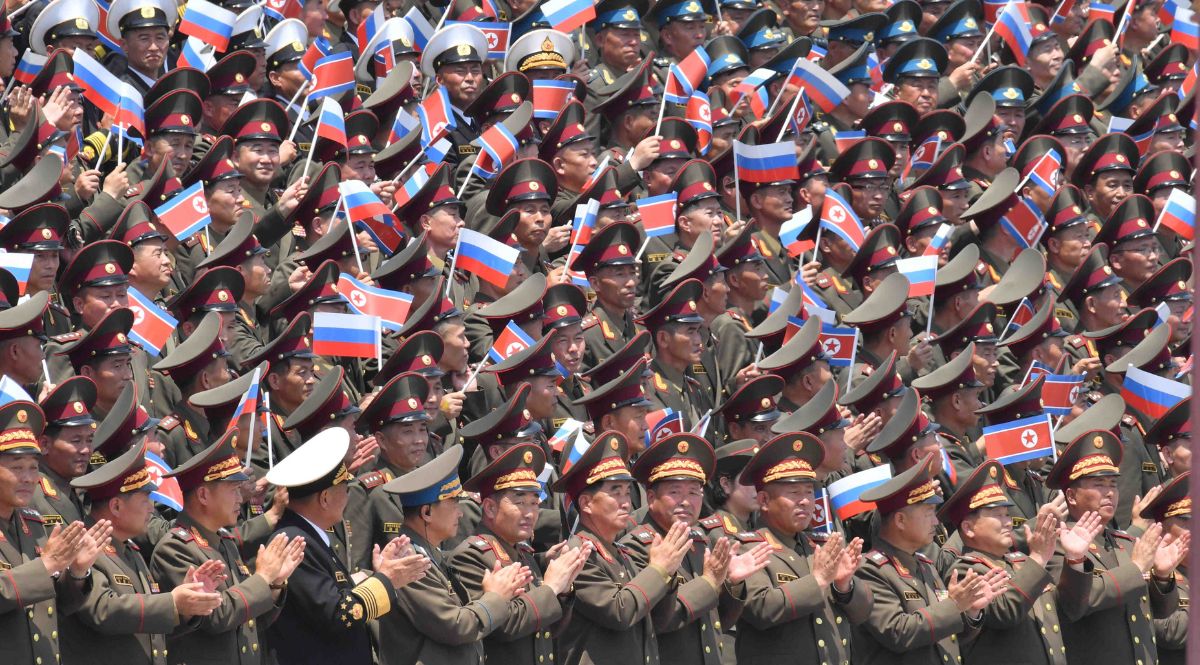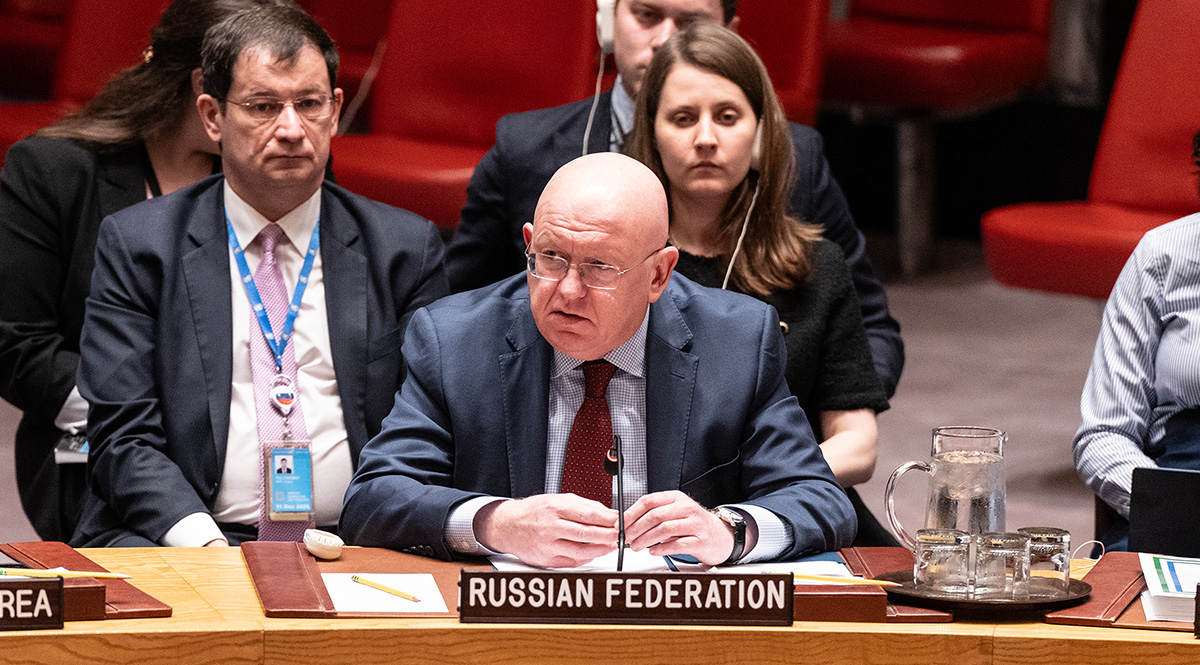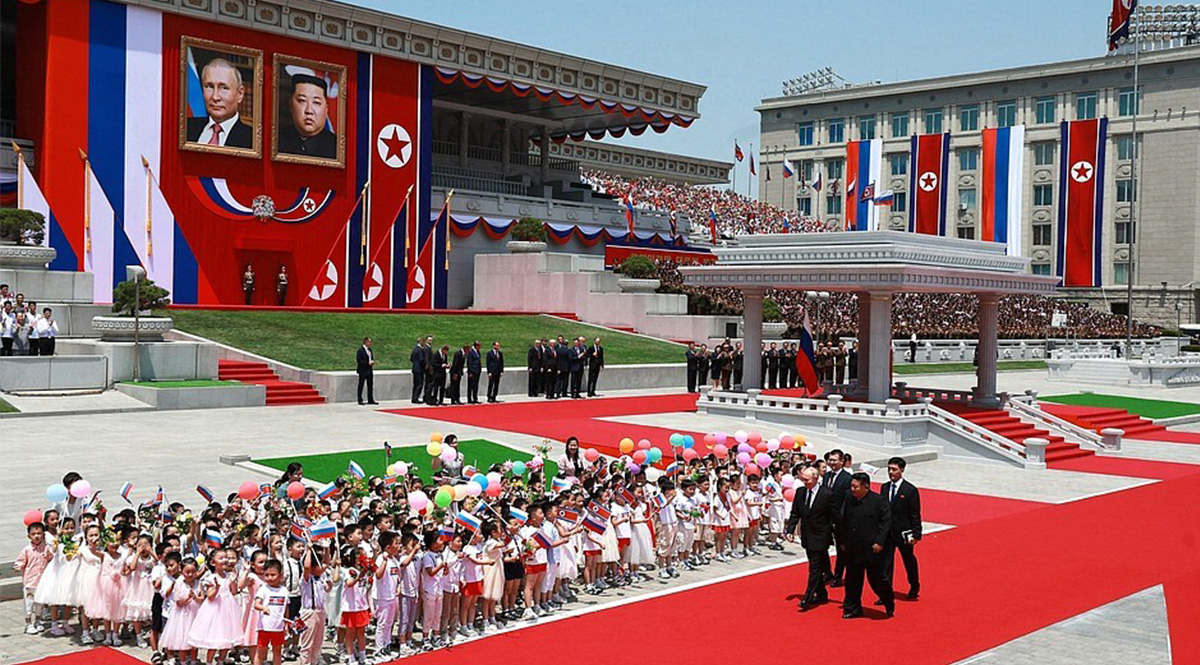North Korea Increasing its Support for Russia in the War in Ukraine
The involvement of North Korean troops on the side of Russia in the war against Ukraine represents an escalation of the conflict. Regardless of the scale and scope of North Korean support, the very deployment of his forces demonstrates Kim Jong Un’s determination to strengthen his alliance with Russia and derive further political, economic, and military benefits from it. The deepening of Russian-North Korean cooperation should provide an additional argument for strengthening NATO’s cooperation with Asian partners, especially South Korea.
 Komsomolskaya Pravda / Russian Look / Forum
Komsomolskaya Pravda / Russian Look / Forum
Since mid-October, the intelligence services of Ukraine and South Korea have been releasing information about North Korean soldiers being sent first to the Russian Federation for training and then to the Russian-Ukrainian border area. Estimates range up to 12,000 soldiers, 10,000 of whom are already in the Kursk region according to Ukrainian, South Korean and U.S. authorities. South Korean intelligence notes that some of these are likely to be specialised light infantry units prepared for assault and diversionary operations. In addition to Russian uniforms and equipment, the North Korean soldiers are likely to have received fake Russian identity documents. However, it is unclear whether they are under Russian or North Korean command. The latter could be suggested by Ukrainian intelligence reports that the North Korean contingent included 500 officers, including three generals.
The Possible Nature of North Korea’s Involvement
The usefulness of North Korean soldiers will depend on the tasks they are expected to perform. It is possible that they could be involved in regular military operations on various frontlines, most notably in the Kursk region, according to intelligence reports from Ukraine, the U.S., and South Korea. North Korean support could enhance Russia’s ability to regain control of its own territory without having to move troops from Donbas. North Korean soldiers could also provide non-military support to the Russian rear. Some could be responsible for maintaining military and civilian infrastructure, for example logistically important rail links. However, even assuming good physical preparation and training, the usefulness of North Korean soldiers on the front line may be limited. Doubts include their lack of combat experience, problems with Russian command due to language and communication barriers, differences in the conduct of military operations, and uncertain level of morale, which increases the risk of desertion.
In military terms, the supply of ammunition and military equipment from North Korea to Russia is even more significant. South Korean intelligence estimates that the North has shipped more than 13,000 containers to Russia over the past two years, mainly with artillery ammunition (up to 8 million 122mm and 152mm rounds), but also with anti-tank weapons and KN-23 short-range rockets, among other items. In addition, since the beginning of the year, about 4,000 workers have been sent from North Korea to Russia, some to work at Russian arms factories.
North Korea’s Calculations. The involvement of North Korean soldiers in the war in Ukraine is another sign of North Korea seeking closer cooperation with Russia. While the two countries have not confirmed the reports of troops in Russia, they have indicated that their presence would be in line with international law and the Comprehensive Strategic Partnership Treaty signed during Vladimir Putin’s visit to Pyongyang in June and ratified by both countries in November. Article 4 of the document states that in response to an armed attack, the parties are obliged to provide each other with military assistance in accordance with Article 51 of the UN Charter, which speaks of the right of self-defence. Russia and North Korea could consider the Ukrainian offensive in the Kursk region as an armed attack.
North Korea is using the war as an opportunity to develop cooperation with the Russian Federation. By demonstrating that it is a valuable partner for Russia, it expects to reap further benefits from its cooperation. These include political cover in the United Nations Security Council (UNSC) and the paralysis of the UN sanctions regime against the North. They also include economic assistance in the form of food and energy supplies. North Korea also expects Russia to transfer military know-how and technology, including for the reconstruction of the air force, the development of a nuclear and missile arsenal, submarines, and drones. North Korea also wants the Russian Federation to respect Article 4 of the treaty, that is, to be ready to provide military assistance in the event of a conflict on the Korean Peninsula.
The presence of North Korean soldiers on the front line of the Russian-Ukrainian war provides them with an opportunity to gain experience in wartime conditions and to learn the realities of the modern battlefield. Experience in operating reconnaissance and combat drones, using electronic warfare and learning about Western equipment used by the Ukrainian army could be important. The experience gained could be used to train Korean People’s Army soldiers in the country. Russia is likely to pay North Korea in dollars for the soldiers’ participation, providing the regime with the foreign currency it needs.
The determination to support Russia confirms the direction of North Korea’s foreign policy after the failure of talks with the U.S. in 2019. The rapprochement with Russia is the second external pillar for the survival and strengthening of the North Korean regime, alongside maintaining cooperation with China, mainly in the economic sphere. At the same time, North Korea can use Russian support to reduce its dependence on China and strengthen its role in the “anti-Western” network that brings together states opposed to the U.S. and its allies. Cooperation with Russia also increases North Korea’s freedom to escalate the situation on the Korean Peninsula, including increasing tensions with South Korea and conducting more missile tests. It may also serve to strengthen its negotiating position ahead of possible talks with the Donald Trump administration.
Conclusions and Perspectives
The participation of North Korean soldiers on the side of Russia in the war with Ukraine represents a major escalation, as it is the first time that the armed forces of a third country have been directly involved in the conflict. More important than the combat value of the North Korean soldiers on the front line is the political dimension of their presence so far. Russia wants to show that it is receiving foreign support (from China and Iran as well as North Korea) to continue the war in order to discourage Ukraine’s partners from providing long-term assistance. In doing so, it is devaluing the importance of the UNSC, since stepping up military cooperation with North Korean violates resolutions imposing sanctions on the North since 2006. The possible recapture of the Kursk region with the support of North Korean troops would also strengthen Russia’s negotiating position in talks with the West, particularly with the Trump administration, on a ceasefire in the Russian-Ukraine war. Ukraine, in turn, raises the question of North Korea’s involvement in the war in order to mobilise Western states to increase aid. So far, the presence of North Korean soldiers on the frontline has prompted the Biden administration to give Ukraine permission to use U.S. weapons to strike targets deep inside Russian territory.
Despite the North Korean actions, South Korea remains reluctant to provide military assistance to Ukraine. It has limited itself to vague statements about a possible change in its position on the supply of ammunition and weapons to Ukraine. Its rearmament is problematic because of the negative attitude of the South Korean public (about two-thirds of respondents in polls oppose it) and the opposition’s reluctance to further confront Russia. On the other hand, closer intelligence cooperation between South Korea and Ukraine is possible. This is indicated by the South’s willingness to send military and intelligence personnel to Ukraine to monitor North Korean activities.
Russia’s deepening cooperation with North Korea could lead to an escalation on the Korean Peninsula. This is desirable for Russia as it could induce the U.S. to pay more attention to the situation in East Asia than in Europe. Russian acquiescence in the development of its nuclear and missile arsenal could further encourage North Korea to intensify its missile tests and conduct its first nuclear test since 2017. The consolidation of the North Korean nuclear status would mark a further blow to the non-proliferation regime. It would also intensify South Korea’s internal debate about building its own nuclear weapons.
While China is interested in a favourable outcome to the war in Ukraine for Russia, North Korea’s alliance with Russia could pose a challenge to China in the longer term. North Korea could use Russian support to strengthen its position vis-à-vis China. Moreover, North Korea’s rearmament and Russian encouragement of it to escalate tensions would increase the risk of closer U.S. cooperation with South Korea and Japan and the outbreak of a regional conflict, which China would not welcome.
North Korea’s support for Russia should prompt NATO to continue its military assistance to Ukraine and underscore the importance of the Russia-Ukraine conflict for security in the Asia-Pacific region. It is also in Poland’s interest to strengthen the Alliance’s political and intelligence cooperation with Asian partners, including South Korea. The threat posed by Russia’s cooperation with North Korea should be a permanent feature of Poland’s dialogue with South Korea. The security and defence partnership between the EU and the Republic of Korea, signed in early November, could also help to deepen this dialogue.



.jpg)

